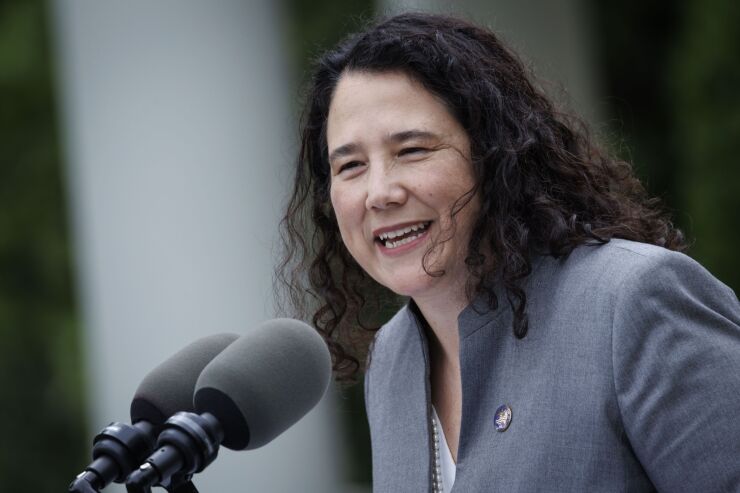
Following a selection process that lasted nearly seven months, the Small Business Administration has licensed three new small-business lending companies. The move came despite continuing objections from lawmakers as well as groups representing banks and credit unions.
Small-business lending companies, known as SBLCs, are nondepository lenders authorized to participate in the agency's flagship 7(a) lending program, otherwise dominated by banks and credit unions. SBLC participation had been capped at 14 companies since 1982, so the new licensees announced Wednesday brought the total to 17. SBA
The new SBLCs are: Arkansas Capital Corp., a community development financial institution; McKinley Alaska Growth Capital, an alternative lending firm that is also a CDFI; and the fintech Funding Circle. All three have expressed a desire to expand their 7(a) operations nationwide.
Already a prominent small-business lender, Funding Circle lobbied hard for an end to the SBLC moratorium, then sought aggressively to secure one of the three available licenses. It plans a measured 7(a) rollout with a focus on making quality loans, rather than on quantity. "It will take time to ramp up, but it's important that we get it right from the first loan through full scale," Ryan Metcalf, the company's head of public affairs, said Thursday.
Denver-based Funding Circle's ultimate ambitions are writ large. "Our goal is to be the No. 1 SBA lender for loans under $500,000," Metcalf said. To that end, it has hired Kaustubh Joshi, a high-ranking Goldman Sachs executive, to drive its strategy of partnering with community banks and credit unions, which Funding Circle sees as a fertile source of referrals. Of the more than 9,000 community banks and credit unions currently operating, fewer than 1,500 participated in the 7(a) program during the just completed 2023 fiscal year.
"If you're a small- or medium-size institution, how do you keep up?" Metcalf said. "You could make a costly decision to build your own platform, or buy one, or you could partner with Funding Circle and leverage our embedded platform, which we believe is more efficient and cost-effective."
Arkansas Capital in Fayetteville and the Anchorage-based McKinley Alaska Growth Capital are also eyeing growth opportunities. "Arkansas Capital has bolstered regional economic development, but now with this SBLC license, we can widen our SBA 7(a) footprint as well, expanding our services to rural and poverty-stricken areas in the South to start," CEO Sam Walls said Wednesday in a press release issued by the SBA.
"Our business model thrives on local collaboration and creative partnerships, and with this SBLC license, we will be able to offer our services to even more underserved markets outside of Alaska," McKinley Alaska President Logan Birch said in the press release. "Our experienced, hands-on team of SBA lenders looks forward to helping support the next generation of entrepreneurs."
Trade groups representing banks and credit unions are still pinning their hopes on
"What we are calling for specifically is to issue no more [SBLC licenses]," Keen added.
SBA Administrator Isabel Guzman has advocated wider participation in 7(a) as a tool to boost small-dollar lending, as well as access to capital by disadvantaged groups. "The Biden-Harris administration remains committed to filling capital market gaps, and the expansion of the SBA's SBLC program after more than forty years is a monumental step forward in this crucial effort," Guzman said in the press release.
Banks and credit unions fear the policy will result in more defaults and fraud. They have often pointed to
"SBA rule changes that lift the moratorium on the number of institutions that can lend under the 7(a) program while loosening underwriting standards will undermine the program and unintentionally harm the very borrowers the SBA is trying to aid," ICBA President and CEO Rebeca Romero Rainey said Friday in a statement.






